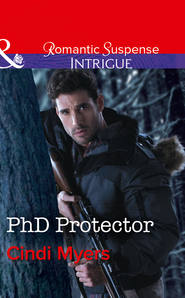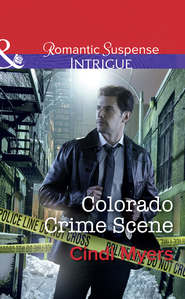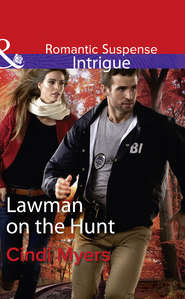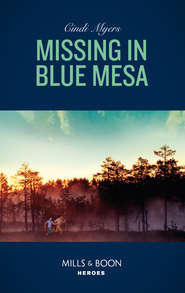По всем вопросам обращайтесь на: info@litportal.ru
(©) 2003-2024.
✖
Danger On Dakota Ridge
Автор
Год написания книги
2019
Настройки чтения
Размер шрифта
Высота строк
Поля
“Or maybe the person or persons who left the necklace there was the same person or persons who shot at Paige,” Rob said. “They left the necklace because they wanted us to know they were watching. That they could, in fact, have taken us out if they had been so inclined.”
“Could be,” Travis said.
They drove to the sheriff’s office, where Deputy Dwight Prentice greeted them at the door. “Hello, Rob,” Dwight said. “Are you here because of the report on Henry Hake?”
“What report is that?” Rob asked.
“It must have come in while we were gone,” Travis said. “Because I haven’t heard about it, either.” He led the way into his office and settled behind his desk. “Tell us about this report.”
“The medical examiner’s office sent over an updated report on their findings in Henry Hake’s death,” Dwight said. He handed a printout to Travis, who scanned it, his face giving away nothing. He passed the papers to Rob.
“I thought the ME ruled Henry Hake probably died of a heart attack,” Rob said.
“He did,” Dwight said. “But one of his bright young assistants got curious about some nasty-looking lesions on the body and did some more digging. This report is what he came up with.”
Rob read quickly through it, only half listening as Dwight continued talking. His gaze shifted to the bottom section and the words Conclusion: Death from Tularemia.
“What is tularemia?” he asked.
“It’s also called rabbit fever,” Dwight said. “It’s a naturally occurring bacteria that, if treated with antibiotics, is rarely fatal.”
“And if untreated?” Travis asked.
“According to the Centers for Disease Control fact sheet attached to that report, a bite from an infected animal could cause skin ulcers, while inhaling the bacteria can lead to pneumonia or, in the most severe cases, typhoid-like symptoms,” Dwight said.
“And the ME thinks that’s what killed Henry Hake?” Travis looked skeptical. “Was he bitten by a rabbit or what?”
“Tularemia is one of the biological weapons the government experimented with in World War II,” Dwight said. “It’s one they were supposedly working on here in Rayford County. I remember reading about it.” Recently, news about just such a secret government lab, located somewhere in the county, had come to light, causing a bit of a stir among history buffs.
Rob let out a low whistle.
“That government lab was supposedly located in an old mine somewhere near here,” Travis said. “Could Henry Hake have picked it up in the soil while messing around looking for the lab?”
“Maybe,” Dwight said. “But when I found his body, it was hanging from the ceiling in that underground chamber on the resort property—Hake didn’t do that himself.”
“You found the body after the DEA determined that chamber didn’t have anything to do with either the World War II experiments or any modern crime,” Rob said. “And the ME ruled Hake died weeks ago—so someone brought his body to that location after we left, and several weeks after he died.”
“Right,” Dwight said. “So while it’s possible Hake died in that underground chamber and someone hid his body for a while, then brought it back, I don’t think it’s likely. Why go to all that trouble?”
“How would the government have used tularemia as a weapon?” Travis asked.
“Apparently, the idea was to put the bacteria in an aerosol,” Dwight said. “You could put it in the ventilation system of a building or simply spray it over a crowd. Not everyone would catch the disease, and of those that did, not everyone would die.”
“You said antibiotics will kill it,” Rob said. “So it doesn’t sound like a very practical weapon today.”
“Except that most people wouldn’t realize they had been exposed, or that they were suffering from tularemia,” Dwight said. “Anyone with a compromised immune system, or lung or heart disease, might die before anyone figured out what was wrong.”
“Henry Hake had a bad heart,” Travis said.
“Did whoever killed him know that?” Rob asked.
“More unanswered questions,” Travis said. “Would this be enough for the DEA to go back into that underground bunker and do some testing?”
“Maybe.” Rob sighed. “I’m not even supposed to be here, you know.”
“Your aunt wanted to know what really happened to Hake,” Travis said. “This might be your best chance to find out.”
Rob glanced at the clock on the wall by the door. “It’s after five in DC, where the decision would have to be made,” he said. “I’ll contact my boss in the morning and let him take it from there.” That would give him a few more hours to come up with a better explanation for why he was in Rayford County right now. Maybe he could persuade his boss he had just come here to fly-fish.
“Let us know what he says.” Travis glanced at the report once more. “I wonder what the market is for biological weapons.”
“What made you think of that?” Dwight asked.
“Because so many times these things come down to money,” Travis said.
“My guess is there are terrorist groups who would hand over a lot of cash to get their hands on a weapon that was easy to distribute, tough to detect and effective for mass destruction,” Rob said.
“Is there a weapon like that?” Dwight asked. “Tularemia doesn’t sound like it would be very effective.”
“Then maybe the point of the lab is to develop something better,” Travis said. “It’s one angle.”
“Hake had a lot of money tied up in that resort project,” Dwight said. “CNG Development talks like they want to spend even more money up there.”
“Yet we’ve had two murders there—three, if you count Hake,” Travis said. “As well as two accidental deaths, three people kidnapped, and a number of unexplained discharges of firearms up there.”
“Maybe we can get the county to declare the place a public nuisance,” Dwight said.
“More likely, CNG will complain that local law enforcement isn’t doing a good job of keeping the criminal element off their property,” Travis said. He straightened. “I’ll give CNG a call and see what they have to say about this latest discovery.”
“Let me know what they say,” Rob said.
“Don’t worry,” Travis said. “You’re part of this now, whether you want to be or not.”
* * *
PAIGE TOLD HERSELF she had to trust Parker, as she watched him drive away. He was a good kid. Or rather, a good man. She had to remind herself her little brother wasn’t a child anymore, and she shouldn’t treat him like one. Yes, he had made some mistakes, but he was too smart to make those mistakes again. She wanted to believe this.
She checked the clock as she passed through the kitchen on the way to her office. It was after three thirty. She had expected her new guest, Robert Allen, to check in before now. Then again, maybe he had gotten a late start from Denver, or decided to do other things before showing up at the B and B. She asked that guests notify her only if they planned to arrive after 9:00 p.m.
She switched on her computer and prepared to focus on balancing her books and updating her financial records—a task guaranteed to require all her attention. She was deep into the frustration of trying to make her numbers agree with the bank’s when the doorbell rang. She started and glanced at the clock, surprised to see she had been working for almost an hour. She closed her laptop and hurried to the door, fixing a smile in place, prepared to play the gracious hostess.
A check of the security peephole wiped the smile from her face. She unlocked the door and swept it open. “What do you think you’re doing, following me around like this?” she demanded of a startled Rob Allerton.
He settled his features into his usual inscrutable expression. “I have a reservation,” he said. “What are you doing here?”
“I own this place.”
He glanced up at the neat white Victorian home, with its black shutters, and neatly mulched flower beds filled with lilacs and peonies fading into winter dormancy. “Nice,” he said.











